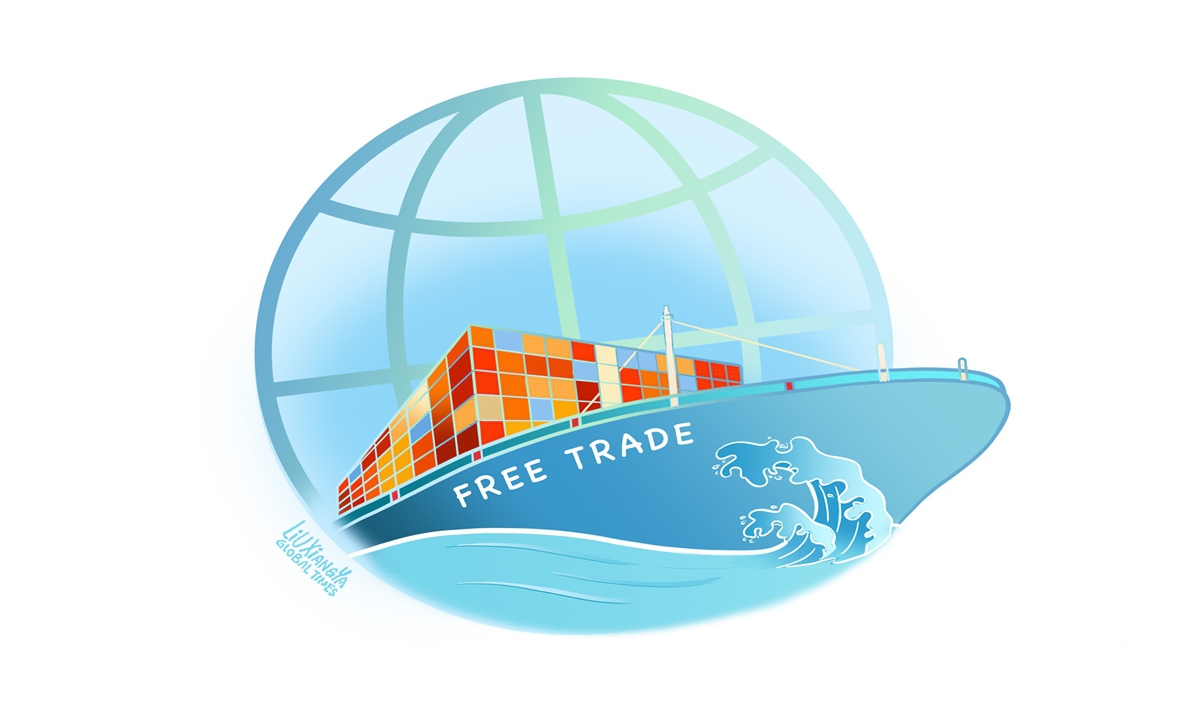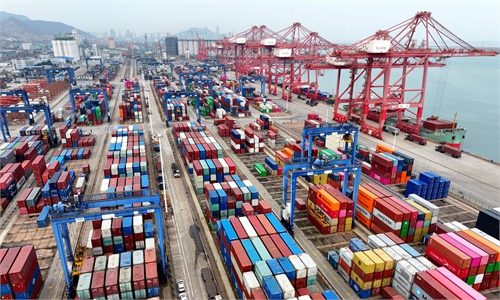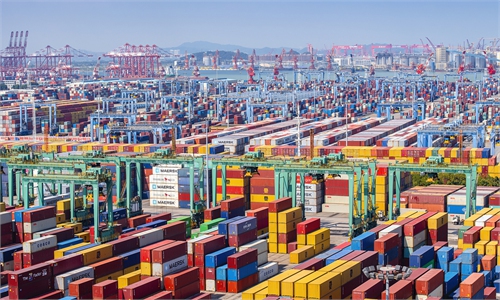
Illustration: Liu Xiangya/GT
Australia's potential pivot toward expanding free-trade agreements reflects a broader global trend, fueled by an increasing awareness among nations of the destabilizing risks posed by the trade protectionist measures adopted by the US.Australian Trade Minister Don Farrell said on Sunday that Australia will push to expand free-trade agreements with other countries to reduce its reliance on the US, the South China Morning Post reported.
"I'm hopeful that those countries around the world who do believe in free and fair trade can reach an agreement to extend free-trade agreements across the globe, so that irrespective of what the Americans might choose to do, we have a greater diversity of trading partners," Farrell told Sky News.
The comment was made just days after the US imposed a 50-percent tariff on steel and aluminum, following the implementation of a blanket 10-percent tariff on Australian goods exported to the US in April.
What makes Australia's stance noteworthy is its symbolic significance as a key ally of the US in the Asia-Pacific region. Australia is likely to reshape its trade landscape, deepen cooperation with Asia-Pacific and emerging economies, and establish a more extensive network of trading partners.
The historical context of Australia's trade with the US further underscores the need for this change. Over the years, Australia has consistently run a trade deficit with the US. According to data from the Office of the US Trade Representative, US goods trade with Australia alone totaled an estimated $51.3 billion in 2024, with the US goods trade surplus with Australia standing at $17.9 billion, a 1.6-percent increase over 2023.
This fact shatters Washington's claim of using tariffs to correct "trade imbalances." Since even a trading partner that runs a considerable trade deficit with the US is subjected to punitive tariffs, it becomes evident that the so-called "trade imbalance" is merely a fig leaf for Washington's unilateral protectionism. Even Australia, a strategic ally of the US in the Asia-Pacific region, cannot be exempt from this approach.
By contrast, free trade has been the cornerstone of Australia's economic prosperity. By engaging in free trade, Australia effectively exports its abundant mineral resources to meet the demands of global industrial development, while its high-quality agricultural products garner favor among international consumers. This extensive trade activity has significantly diversified Australia's domestic economy, infusing it with a continuous stream of vitality and driving economic growth. Australia's pivot toward free trade is not merely an economic strategy; it reflects a recognition of the benefits of free trade and the potential for shared growth.
Australia's shift is not an isolated case but a microcosm of an international trend. Fueled by mounting concerns over the destabilizing effects of US trade protectionism, nations worldwide are reevaluating their economic alliances and charting new courses for sustainable growth.
The European Commission in May launched a public consultation on a list of 95 billion euros ($107.4 billion) worth of US imports potentially subject to tariff countermeasures, to be implemented if a trade deal was not reached with Washington, according to CNBC. Similarly, other countries like Canada have also adopted retaliatory tariff measures to express their discontent with US trade practices.
Prioritizing its own interests above all else and trampling on the fundamental rules of free trade, the unilateral US tariff increases severely violate the multilateral rules of the World Trade Organization (WTO), significantly eroding the WTO's authority and pushing the global trade governance system toward fragmentation.
From a macro perspective, the global trade system is undergoing a profound restructuring. Countries are actively seeking new equilibrium points to cope with the uncertainties brought about by US policies. This global policy adjustment is historically inevitable. From Canada to Australia, from the UK to the EU, and to South Korea, economies around the world are making similar strategic adjustments. These adjustments are not only a direct response to Washington's unilateralist policies but also a necessary choice for them to safeguard their own economic interests. Behind this lies the international community's common desire for a global trade order characterized by fairness, freedom, and openness.



